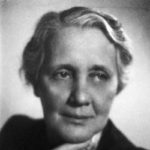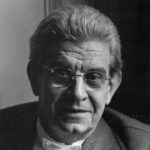Exploring the Unconscious: Arts, Science and the Humanities
Events
Dec. 7th Meeting Canceled
Due to a change in the speaker's availability, our meeting previously scheduled for December 7, 2024 is canceled.
Autism as a Mode of Being
Autism is often described as a developmental disorder, implying there is a standard way to develop. However, Freud’s psychoanalysis offers a unique perspective on development by denaturalizing the human subject, […]
True Love As Love of Truth
Melanie Klein's entire endeavor might be described as a rich and unwavering effort to allow love to come to the fore, or in Klein's words, to extricate "love buried under […]
Questioning the Superego
In this paper I approach and examine the concept of the superego mainly from a Kleinian point of view, describe how it changes during the course of an individual’s development and raise questions about how and to what extent the primitive forces on which it is built can be modified by psychoanalysis. Using theory and […]
Rossellini Beyond Repair
Albany Senior Center 846 Masonic Avenue, Albany, California, United StatesThis talk revisits Roberto Rossellini's Europa '51 (1952), a film that Gilles Deleuze made famous for its way of "seeing convicts" in a range of social institutions, including the factory, the bourgeois family, and the psychiatric hospital. Recent accounts of Rossellini's career have emphasized his role in manufacturing narratives of postwar national innocence. Though not […]
Anorexia: Between Desire for Recognition and the Death Drive
Albany Senior Center 846 Masonic Avenue, Albany, California, United StatesIn this lecture we will address the enigma of mental anorexia from the perspective of psychoanalysis. From the beginning, Freud perceived in this syndrome, which predominantly affects young women from puberty onward, two heterogeneous and irreducible structural sides of its manifestation: the hysterical and the melancholic declination. In the hysterical version, a dynamic of anorexia […]
What Should I Call You? Pronouns and the Scene of Address
We are now often asked what our pronouns are and how we want to be referred to. But we also receive statements or declarations or requests regarding how others wish to be referred to. The pronoun has come into relief as a turbulent terrain. Tensions have emerged within families, between generations, and between some feminists […]
Link Theory and Practice: The Irreducible Effects of Presence
A possible definition for vínculo, translated into English as link or bond, is that of an unconscious situation that links subjects, determining them based on a relationship of presence and the effects of presence, distinct from a relationship based on absence and the re-presentation of that absence, leading to irreducible effects and encounters with excess […]
The Structure and Function of Part Objects
A distinctive feature of Kleinian approaches in psychoanalysis is their interest, which developed from Melanie Klein’s work with children, in early states of mind, which she called ‘primitive,’ These frequently involve part object relating, in which a person relates, not to whole people, but to parts of the self and of others. I am going […]
Psychoanalysis: the Contemporary Scene from an Editor’s View
Scanning the contemporary psychoanalytic scene from the perspective of a journal editor, I will present (necessarily partial) observations and questions about recent and long-term continuities and changes. Aiming to initiate discussion, I will touch on a variety of topics: theory and theorists, infancy, sexuality, society and politics, art and literature, the environment, history and psychoanalytic […]
Working Backwards: “Backwards Causation” and the Temporality of the Unconscious in Pre-Freudian Dream Theory
The appearance of Freud's The Interpretation of Dreams in 1899 is often thought to have launched a 20th-century fascination with dreams and the unconscious mind. Yet Freud's work (and the use of dreams to draw conclusions about unconscious thought processes) is also the culmination of a now forgotten 19th-century tradition. Under the heading of "working […]


